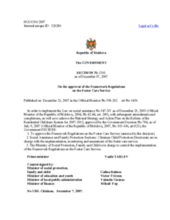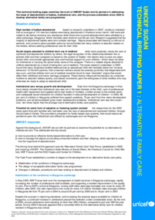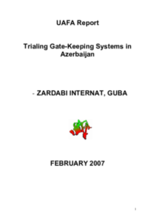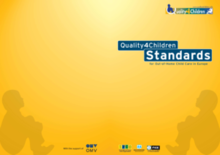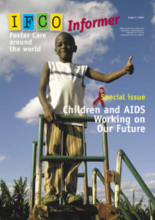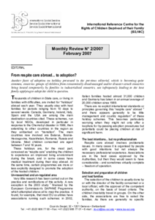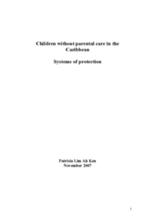Displaying 2101 - 2110 of 2223
Decision No. 1361 on the approval of the Framework Regulations on the Foster Care Service was enacted by the Government of the Republic of Moldova on December 21, 2007 in order to implement the Law on social assistance (No 547-XV as of December 25, 2003) as well as to achieve the National Strategy and Action Plan on the Reform of the Residential Childcare System for 2007-2012, approved by Government Decision No 784, as of July 9, 2007.
In this paper, the authors review Australian research investigating the outcomes for children and young people who are currently in care (i.e., the short-term outcomes for children).
This paper aims to: summarise what we know from Australian research about foster families; assess the quality of the evidence base; and identify future research needs.
Examines the work of UNICEF Sudan and its partners in addressing the issue of abandonment of babies, institutional care, and the process undertaken since 2003 to develop alternative family care programmes.
Documents implementation of Azerbaijan's national de-institutionalisation and alternative care programming
A set of standards on the process of a child or young person entering care, being cared for, and leaving care, based primarily on the views of children, families, and caregivers.
The February 2007 edition of the IFCO Informer. Focuses on foster care solutions in the context of the global AIDS pandemic.
An 8-page document containing articles and updates from ISS/IRC.
A regional assessment of responses to children outside parental care in the Caribbean. Extensive research on successful examples of alternative care. Includes recommendations and lessons learned.
This article addresses fostering as a traditional care and support system for orphans in Ghana, especially those whose parents have died of AIDS.

